Initially starting as a freelance journalist and then switching to (ghost-)writing books full-time, Tim Van der Mensbrugghe has been writing for over 20 years. In this interview, he has demystified the perception of a ghostwriter and how he could write eight books a year with Ulysses.
Please tell us something about yourself.
I’ve always wanted to become a writer or a journalist. In 2003, when I was still studying languages at the university, I began writing as a freelancer for the Flemish newspaper De Morgen. There I also met my wife, who shares my passion for telling stories.
I kept writing for De Morgen and other newspapers and magazines until 2018. At that time, my other interest – writing books – took over. Suddenly, different publishing companies asked me to ghostwrite books. I had never considered doing that before, but I had already written a couple of non-fiction books in my own name, and I liked the whole process, even though those books sold poorly. So I said yes. After my first book as a ghostwriter, I was hooked. I knew: I wanted to do this full-time. And that’s how it eventually went.
It’s the writing itself that makes this job so much fun. I keep writing books under my own name from time to time, but it doesn’t really matter whether a book has my name on it or someone else’s: each book feels as if it's mine.
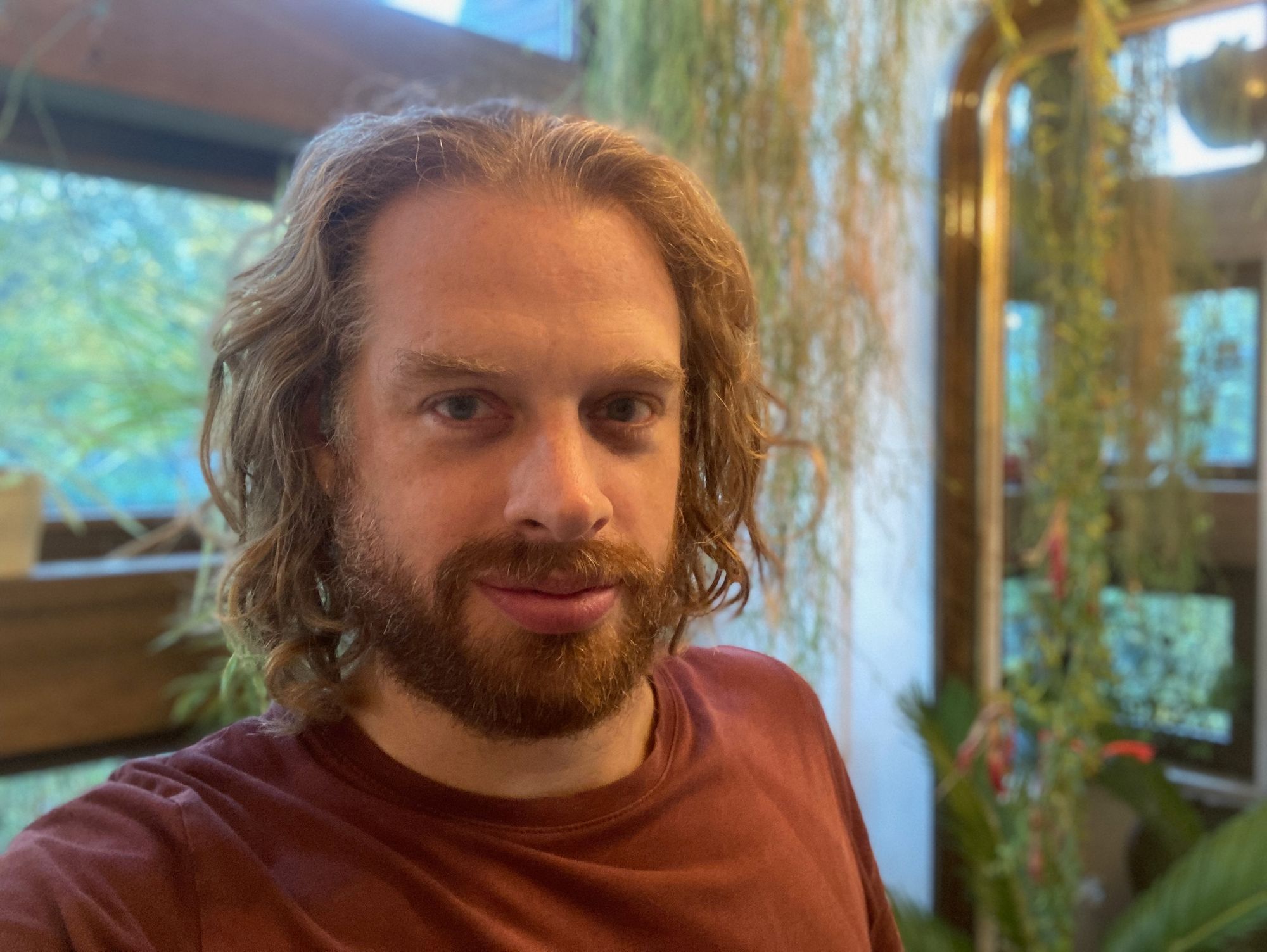
What coincidence led you to become a ghostwriter?
Publishers often ask journalists to ghostwrite books because they know how to vividly tell a story. I guess it was only a matter of time until a publisher asked me to write a book. When I got the question in 2017, I decided to give it a try.
It was great fun.
Shortly after that, another publisher asked me the same question, and again, I had a lot of fun. I had never thought of becoming a ghostwriter, but suddenly ghostwriting was all I did.
It doesn’t really matter whether a book has my name on it or someone else’s: each book feels as if it's mine.
What do you think are some of the essential qualities a successful ghostwriter should possess?
Two qualities are more essential than others: you’ve got to be able to tell an engaging story, and you’ve got to get into the head of the person you’re working with.
When I’m writing, I’m always thinking about the reader. Using words, I want to paint pictures in the mind of my reader, and I want the reader to keep reading. That now comes naturally to me, but it’s a mindset you’ve got to adopt: how do you engage your reader? How do you make them hunger for more?
At the same time, I try to write in the voice of the ‘official’ author. That’s not so hard because I mostly work with interviews, which is prime source material, but I also have to fill in a lot of gaps by writing stuff that the official author didn’t really say but could’ve said. You’ve got to feel: is this plausible or not?
When I’m ghostwriting, the result feels like my work, but I’ve performed someone else’s voice. It’s like acting with text.
What is the biggest challenge of working as a ghostwriter?
Finding the right tone of voice and getting your own style out of the way – which is also what journalists have to do when writing an interview. When I’m ghostwriting, the result feels like my work, but I’ve performed someone else’s voice. It’s like acting with text.
The best compliment I can get is when someone says: ‘Wow, those are my words, but better!’
I once worked with someone who wasn’t happy to recognise their own voice in my texts. They were too focussed on some other books I’d previously written, but the publisher convinced them my text had the exact tone of voice that was expected.
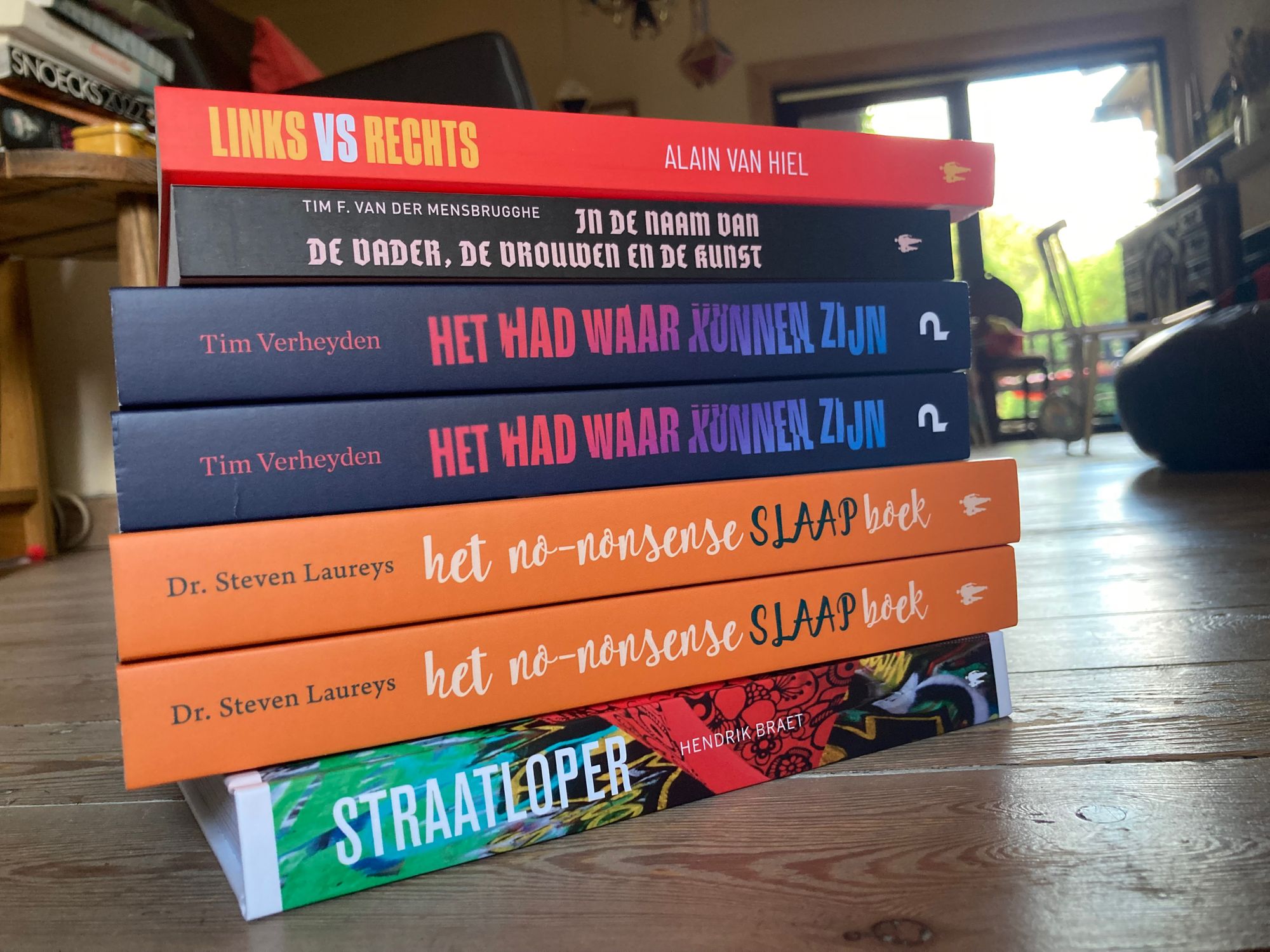
Have you ever met any clients that impress you a lot?
Not really. I’ve worked with some high-profile politicians, scientists and celebrities, but most were pretty normal people. They can have impressive stories, talents or insights, that’s why they're so well-known, but I’m not impressed because someone’s famous and appears on television all the time. It helps that they know I can do something they’re not able to do themselves: write compelling books. They respect me for that, just as I respect their accomplishments. We have to be on the same level, in a way. They’ve got to trust me to write about their lives, their hopes and their fears. I act like a confidant, someone around whom they can be themselves. They’ve also got the final say regarding the content of the book.
What are your all-time favorite writing subjects?
The most fun thing to do is tell life stories and let the reader feel what my main character has experienced. I also very much like to write about all kinds of scientific topics that intrigue me personally. I try to put my own fascination in my words – without overdoing it.
Furthermore, I’ve written books about a wide range of topics, but I’d say there are three main topics: (medical) science, politics and amazing life stories (like a former undercover agent, a world-famous base jumper turned leadership coach and a celebrity who’s addicted to riding the Dakar rally).
I’ve also ghostwritten two novels, expanding the universe of a television series. It was a horrible process, but the writing itself was a great deal of fun. Maybe I’ll start writing fiction in my own name one day.
I’ve got a blog, but I haven’t updated it for quite a while. (Too busy writing books.)
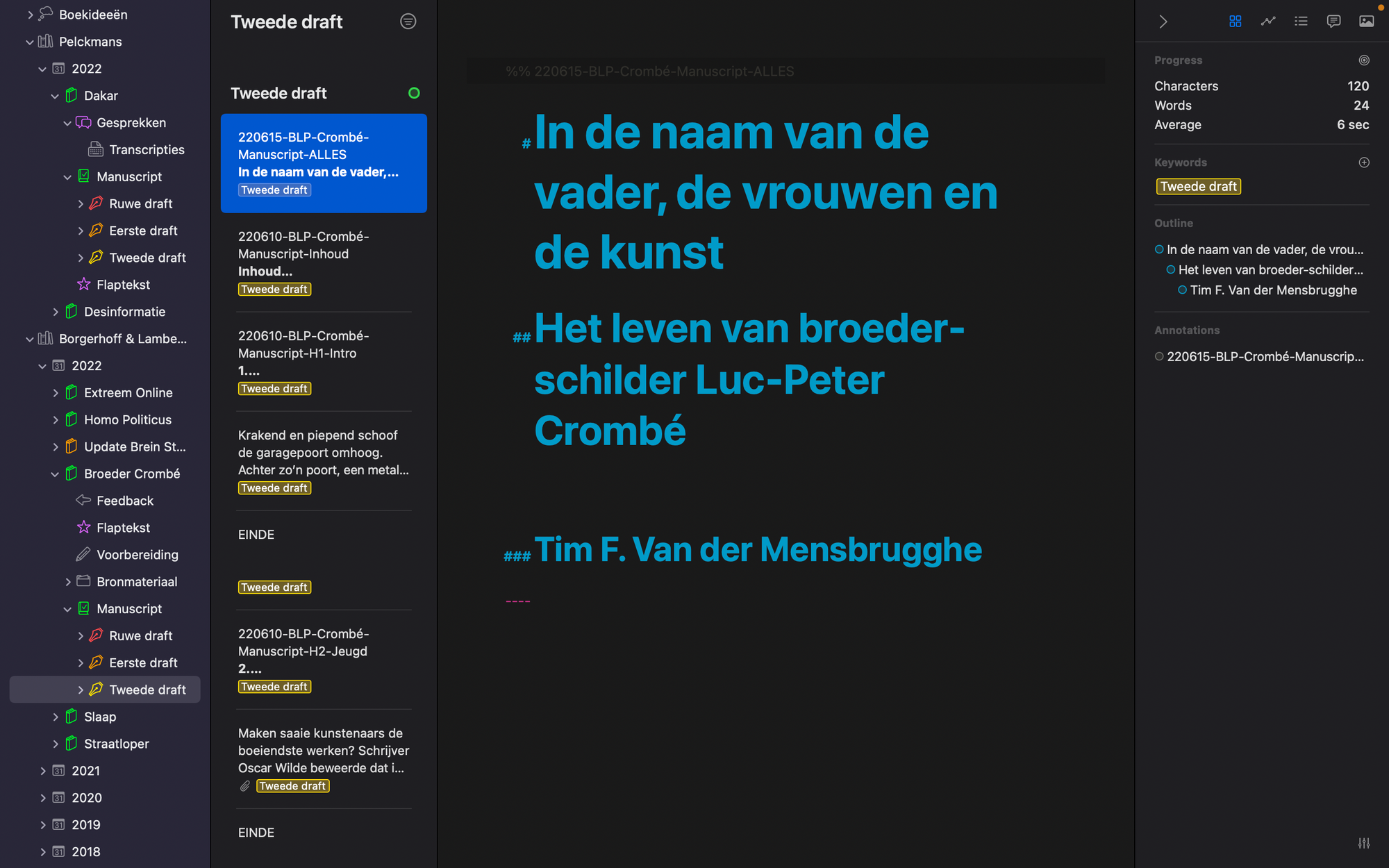
How did you come across Ulysses? How does Ulysses help you with your writing projects? What do you like best about Ulysses?
In 2017, I was working on a book with a friend who’s a photographer. I needed a flexible app, and the native word processor on my laptop just didn’t offer that flexibility. So I did some research and came across Ulysses.
I immediately liked its clutter-free design. Ulysses helped me keep track of my manuscript as a whole. I also started using it for writing newspaper articles and blog posts.
For me, the Ulysses library, combined with the use of sheets, is still the app’s biggest power. I’ve got everything right at hand without getting lost in a huge pile of text. I use Ulysses for taking notes during my interviews; then, I clean up those notes to readable text. The next step is to break down all those cleaned-up transcriptions into sheets that each contain a single story, insight or topic. Then I recombine those sheets into "proto chapters." I use groups for my chapters and glue sheets together. That’s my rough draft. The next step is to knit all those sheets together into a nicely flowing text. For longer chapters, I use different sheets, each with its own title. I use keywords to separate rough draft from first draft – that also helps me to track my progress. During the writing of my first draft, a lot of sheets get swapped around. I move them to other chapters and even create new chapters along the way. That’s where Ulysses really shines. It feels like sculpting a book.
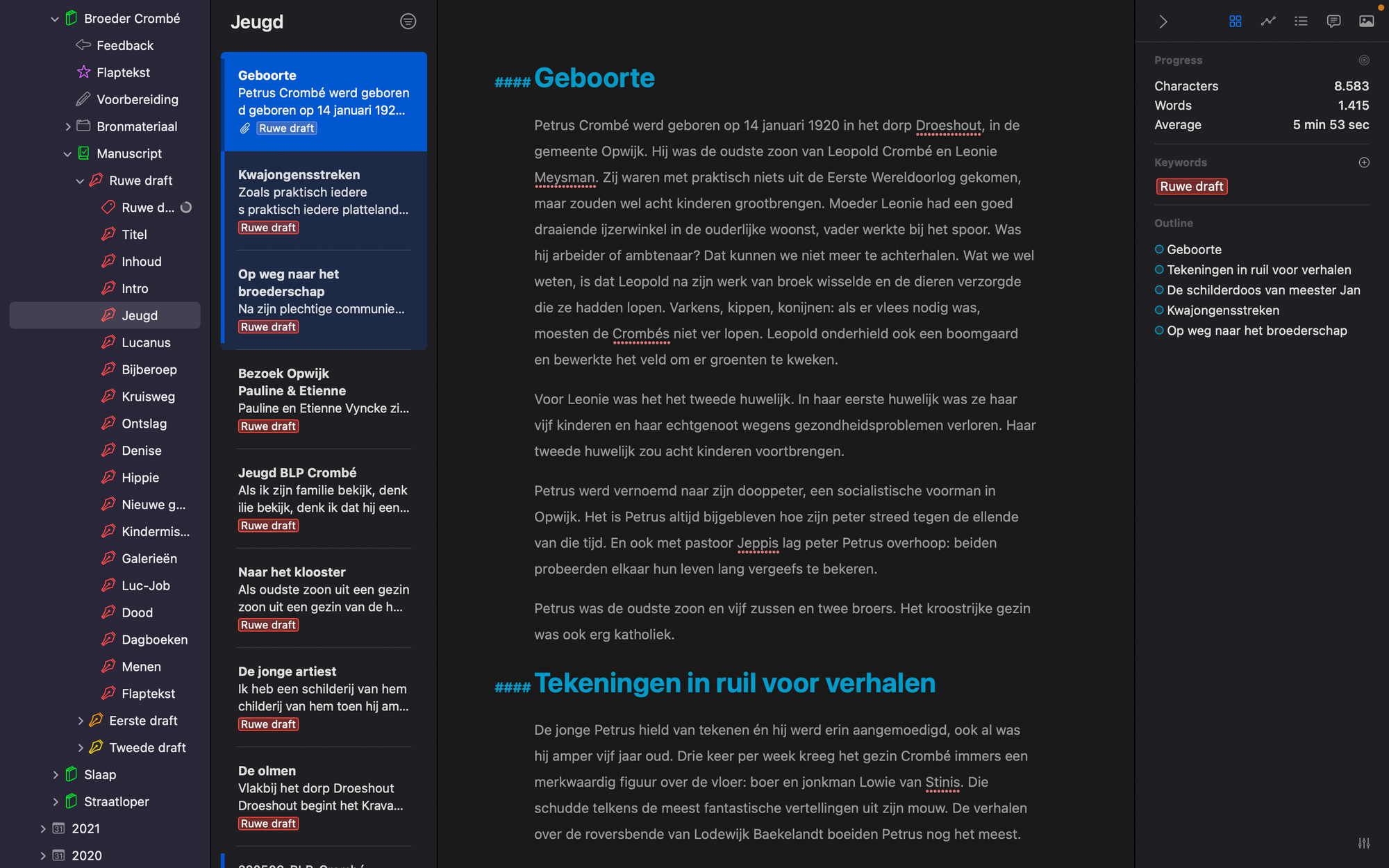
If I used a standard word processor, writing a book would take me twice as long. I just wouldn’t find my way in a very long document, or would have to work with all kinds of smaller documents. Ulysses has solved that problem.
Something else I’ve learnt as well: only say yes to projects that inherently fascinate you.
What other tools and productivity apps do you use, and how do they help you?
I did use the apps Timing and 1 Focus for quite a while, but I stopped doing that. When the deadline is getting near, I automatically get into the right flow to write a lot, and then I don’t need any apps. And when I’m not ‘in the zone,’ an app can’t really change that. In that case, I’ve got to go outside. I am an avid inline skater: to clear my mind and then return to my writing desk with new energy.
Something else I’ve learnt as well: only say yes to projects that inherently fascinate you. Writing what you would’ve wanted to read yourself doesn’t require external motivation. That’s a joy in itself. Writing that first draft is just something I like doing very much. When I get up, I want to get writing. Ulysses helps a lot to keep writing so much fun.
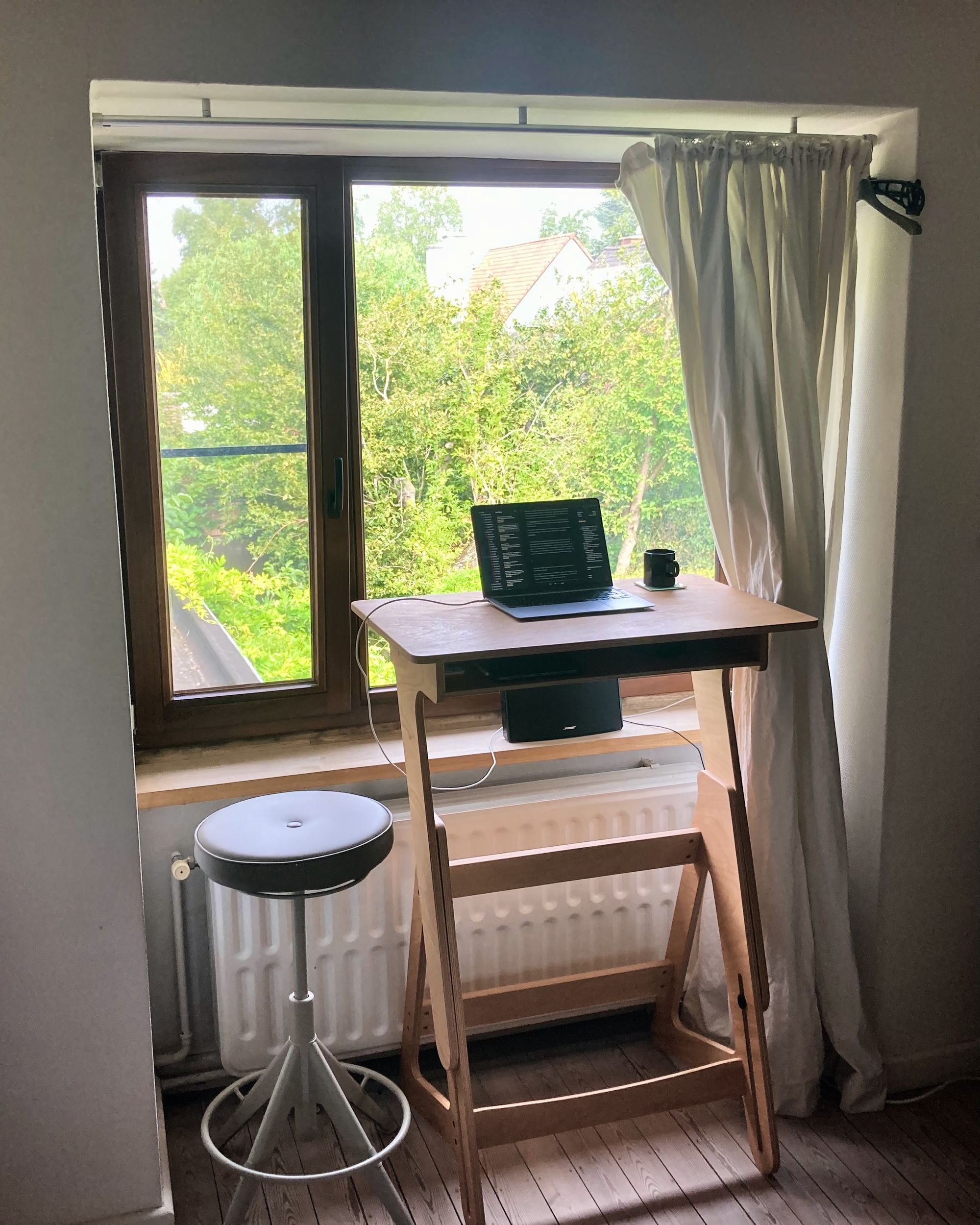
Would you like to find out more about Tim Van der Mensbrugghe's story? Then visit his blog (in Dutch). You can also drop by his Twitter and Instagram.
